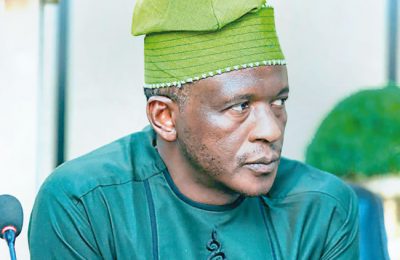Despite its twists and turns, the presidential election in Nigeria has produced a winner. Historically, it has proved to be one of the most interesting elections. It is the first time that we have had such keenly-contested election where the three top candidates were almost evenly voted for; with APC’s Bola Tinubu outright win in 12 states, Atiku Abubakar of PDP winning in 12 states and Labour Party’s Peter Obi’s outright victory in 11 states and the FCT. The winner was decided by spread and a simple majority. The next National Assembly will be the most representative with eight parties winning seats. While those who feel aggrieved with the declaration of Ahmed Bola Tinubu as President are preparing to go to court to dispute his victory based on what they claim is evidence of a process they consider not credible, I would like to appeal to all supporters of the three leading candidates not to further heat up the polity with statements that can incite people to anger and ultimately, violence. A President can only rule a nation that exists! Divisive rhetoric at this time that could tear the nation apart is unbecoming of any contestant or leader who truly believes in the sanctity of our nationhood. Until the courts pronounce otherwise, let us support the elected president to make the Nigerian Project work. Declaring a lack of confidence in the Judiciary even when you have not filed a case before it, is to say the least preemptive and questions the sincerity of any candidate to be part of a democratic process.
On that note, I congratulate the winner of the election, Ahmed Bola Tinubu of the All Progressives Congress. I pray that he will succeed and bring the succour that Nigeria and Nigerians need at this time. Four years is enough time to lay a solid foundation for a greater Nigeria whose passport we will be proud to carry anywhere in the world.
Back to our discourse.

If there is anything that the internet has done, it has shrunk global boundaries, enhanced communication, facilitated linkages, trans-border trade, enhanced capacity for leading diversity as well as liberalized operations and processes. This brings to the fore, a few critical issues that leaders must be comfortable with if they want to be on the cutting edge of operations.
The average person today has an internet-enabled device; mobile phones, tablets, desktop computer, etc. Look around. Almost everyone, including you, is glued to one gadget or the other throughout the day, on and off work. What this translates to is that work and leisure have become largely mobile. Any leader that wants to take his organization far must therefore be comfortable with the art of virtual leadership. It is possible, via technology, to run a virtual office with only a physical address while all its operations are outsourced to staff who live in different parts of the world or the country. All that is required is the right equipment or software and a generous internet bandwidth. Several companies in the United States have their Customer Service Agents somewhere in Asia. With a subscription, you can have a virtual Secretary that does everything that your personal secretary or assistant would do. Robotics and Artificial Intelligence are redefining functions and processes worldwide.
COVID-19 forced many establishments to look away from the brick and mortar dimension of operations and seek simpler, leaner ways of achieving greater results. We have seen a dramatic increase in the number of people who work remotely or do hybrid work which requires them to spend only a few days in the office and the rest of the week working from home. We are also seeing organizations that have adopted a four-day working week. However, technology has not removed or diminished the impact of diversity in the organization. In addition to issues of diversity of personalities and personal preferences which the leader manages daily in the office environment, we now have the challenges posed by the boundaries in geographical locations, cultures, processes as well as function. In a survey, it was reported that about 90 per cent of leaders agree that virtual leadership requires different skills from face-to-face leadership. To be effective in virtual leadership, the most important skill required is effective communication.
The challenges of the current environment require management that encourages and builds teams over silo, individualistic operations. Collaboration, team building and teamwork are essential ingredient required for effectiveness and success. The era of the superstar that shines alone in a collective is gone! Today’s leader must be very comfortable working within the dynamics of empowered teams that can take decisions on how they want to proceed with an assignment, thus defining the process while keeping faith with the corporate objective. This is what is embodied in the Agile (SCRUM), and ITIL4 Management systems that empower teams above individuals in the workflow process. This gives people a sense of stakeholdership and fosters better understanding of the various loops in the process, as team members are selected from various departments of function to collaborate with others to achieve set tasks and corporate goals.

With the deluge of information coming through the internet, concentration is a challenge when people are glued to the computer or tablet for work. The average worker’s attention span is shorter than it had ever been. Long stretches of uninterrupted work are very rare if not non-existent. In a survey conducted by the Centre for Creative Leadership, it was revealed that the average Senior Executive experiences interruptions to his work every thirty to forty minutes! Even when staff members are not allowed to make or receive calls at work, according to Gloria Mark, the average worker is interrupted every eleven minutes on the job, and it takes another twenty-five minutes to return to the original task. The interruption could come in form of in-house or client e-mails or calls that require immediate response. It could be a job-related issue on social media that needs to be urgently addressed, or an interruption by a colleague that needs clarification on an issue of immediate concern. It could be a need to surf the internet for job-related information or research to enhance the quality of a presentation. Sometimes, the interruption is not even work-related! Family emergencies and health issues can interrupt the flow of work. It is not for nothing that many establishments are paying greater attention to the issues of mental health of employees. This is because the emotional and mental state of an employee will definitely affect his performance on the job, which may also translate to several interruptions in the workflow.
Change is here and will not go away anytime soon. In fact, we can only expect that it would continue and possibly become even more rapid and complex as people, functions and processes evolve. No doubt, the challenges attendant on such rapidity require great flexibility, humility and the willingness to learn. The leadership that will drive the process must be proactive, agile, nimble and have an unusual capacity to think on its feet! Failure to do this means that the organization is headed to becoming confined to the dustbin of history as it gears toward singing its swan song!
Remember, the sky is not your limit, God is!
READ ALSO FROM NIGERIAN TRIBUNE







